Facundo Campazzo, the Golden Generation’s missing link
Campazzo, someone who, at 27-years-old, is an expert in breaking barriers and defying the limits. He is, by nature, a destroyer of prejudices.
SAN JUAN (FIBA Basketball World Cup Americas Qualifiers 2019) - In an instant, a simple moment maybe hides itself as normal inside something that seems like a routine. But one always must make sure that what happens daily does not lose that special touch. These were a couple of seconds after the initial jump in the Aldo Cantoni stadium, in the San Juan province. There is a sea of 8,000 people applauding a hidden giant in a 5’8” body. Over there is Facundo Campazzo, being cheered after touching the ball for the first time in the game that will mark his return to the Argentine National Team in the FIBA Basketball World Cup Americas Qualifiers for China 2019. It is a demonstration that confirms his feelings. It is a very special love affair that grows stronger throughout the years and is not surprising. Facundo Campazzo is the missing link of the Golden Generation. It is the continuation of the new white and celestial blue brood of that group of monsters that shook world basketball and broke schemes and boundaries. Yes, it was Campazzo, someone who, at 27-years-old, is an expert in breaking barriers and defying the limits. He is, by nature, a destroyer of prejudices.
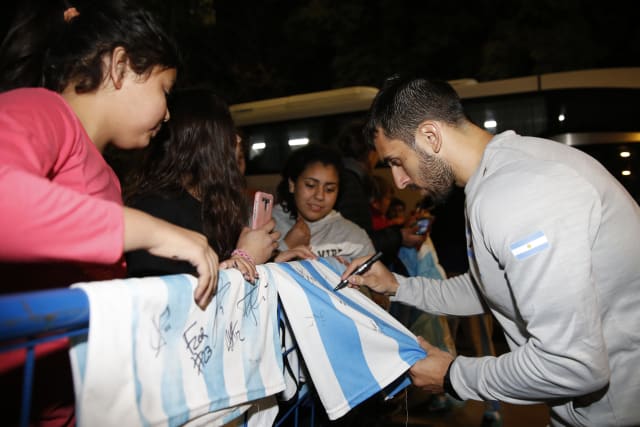
We must go to his birthplace in Córdoba to understand this tale. It is a place in the country where some pages of its history were written and where a lot its glories were born. Over there, with barely 5-years of age, the small kid started his relationship with the orange ball at Municipalidad Sports Club. It was by mere coincidence since Mary, his mom, sent him to practice a sport “because he was hyperkinetic.” Even though coincidences, a lot of times, are not just that. And Facu started at that moment to overcome difficulties. Even though “everybody was small”, like he remembers, they would come up with ways to compete face-to-face against the Atenas and Instituto Clubs, the best in the region. And that way, maybe without knowing, he started to create a special personality. He also started to become a champion with the Córdoba Infantiles. He joined another local sports club, Unión Eléctrica. Later came a moment that would start to change his life, one of those that destiny stubbornly puts in front of you to change your story.
The voyage
It was an October 20, but of 2006. Unión Eléctrica traveled to Mar del Plata for the semifinal game of the Argentine Clubs U18 (a lucky youth National League team) and faces Peñarol. In the end of the third quarter and with the number 15 shirt, a Campazzo that had the same age as the back of his jersey jumps into court in a game that was practically defined. He could not change that path, but he did catch Osvaldo Echeverría’s attention, a historic coach of the Mar del Plata basketball club. “He did not play much in that game, but I liked his spark, he was explosive and had clarity. I told him to come here to for a try-out and President Domingo Robles gave him the approval. Facundo had some nerve in basketball,” remembers Echeverría in an article of the mythic El Gráfico magazine.
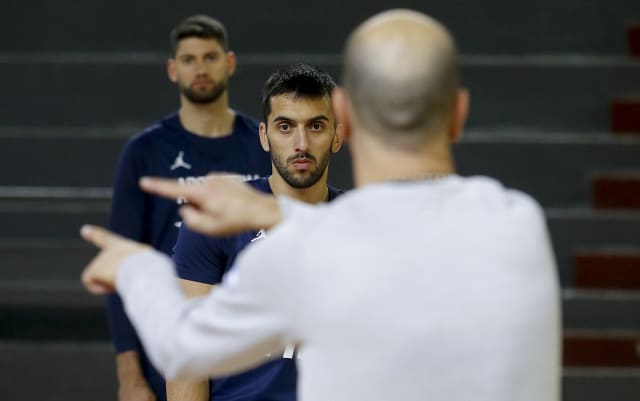
And that way, almost by coincidence (or not really, since coincidences are not just that), this story found the young Cordobés in Mar del Plata and with Peñarol, a marriage that would end up being one of the most successful in the history of Argentina. If the “Milrayitas” Basketball Club created one of the most powerful dynasties in the Rioplatense basketball was, in great part, because of what Campazzo did, while destroying big prejudices during his path. “They took him to Peñarol when he was 15-years old and without knowing himself. But from that moment on he started to grow incredibly every day,” said Sergio Hernández, father of the Peñarol of that time. The same man that made him debut two years after he arrived. It was on October 10, 2008, in a win over Gimnasia of Comodoro Rivadavia. Even then, during the brief time that he was on court, he shot his first two-pointer. It was, simply, the beginning.
Take-off
Facu grew up under the shadow of Sebastián “Tato” Rodríguez, Peñarol. He was a revulsive young man, a pest for the rivals on the benches. He was one of the many keys that Oveja’s team had and were able to win two titles in the National League with the Cordobés adding his grain of sand, first as the third point guard, then as the main one. But before the start 2011/2012 season, Rodríguez had to retire because of a heart problem. Just like that, at 20-years of age, Campazzo had to become the point guard of the best team of the country (maybe the continent) and take the place of one of its biggest heroes. They said a lot of stuff...His height, that he was only revulsive, that he was not a thinking point guard... But he ignored all of that and dedicated to do what he does best: work hard, do his best, and sacrifice himself to silence–with the orange ball—his critics.
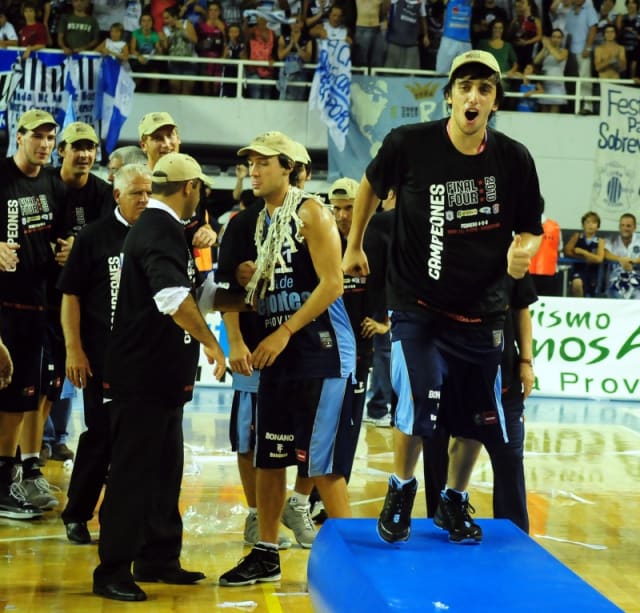
He ended up being one of the main figures of the new title, averaging 14.2 points, 5.9 assists, and 4.3 rebounds throughout the season. He was chosen MVP of the finals against Obras Sanitarias (they won the series 4-2) and gave form to the first triple champions in the history of the Argentine National Team. The small guy started to dominate the local area. And, even though for some it “was not enough”, he himself was opening the door to the celestial blue and white world.
Olympian
On June 18, 2012, three weeks after the victory in the League, he would debut his Senior Argentine National Team jersey. He never had the opportunity in the trainings or appeared on the usual radar of the promises that usually creates expectations. But there he was, 21-years-old and transformed into a reality for a while. Colombia suffered him on their opening game, where he shot 21 points on the first steps of a team that would celebrate their title at home (specifically in Chaco) in an undefeated manner. Facu would end up as the second-best scorer (10.8 average) of a roster led by the historical Leonardo Gutiérrez, his backer in the Peñarol dynasty and one of the pillars at the time of creating his winning spirit. “The work he did to grow his career has been enormous. And even thought I gave him advice and guided him in a way when we were together, all of it is part of the sacrifice that he has made. Facu is like a younger brother to me. He is someone I respect and admire,” said Gutiérrez, the top winner in local Argentine basketball.
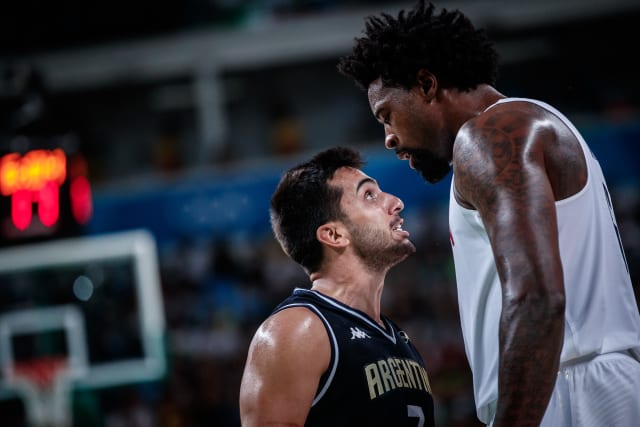
Campazzo had met the demands, but to imagine him even better in another level seemed so far away. However, when a prejudice appeared, he erased it. After a little over a month, the small guy that could only be revulsive found himself in London, in the Olympic Games, with five years less than the next one on an historic roster. Yes. He was with Manu Ginóbili, Luis Scola, Pablo Prigioni, Andrés Nocioni, Carlos Delfino, and others. He was in a world surrounded by stars, and that encouraged him. He does not care about the importance of who is in front of him if the context is inside a basketball court. Even in the preview of the Olympic date he had the pleasure of writing a page for his personal history with a tremendous block to Kobe Bryant. Yes, the small guy that is 5’8” blocked an NBA legend. He had more than plenty of character and determination in his repertoire. And that is how, even then, he did not waver when he was made the leader after Prigioni suffered a physical problem. He even tried a triple-double (12 points, 9 rebounds, and 7 assists) in the victory against Tunisia. He left there with a fourth spot that hurt because of how close he was to a medal, but with a backpack full of education, that even included some scolding.
Changes
Before London, there was a situation that Campazzo always remembers. Manu Ginóbili saw him without a shirt in one of the practices, stopped and told him: “This is the first time I see a 20-year-old point guard with a belly.” Facu did not get mad and understood the message. He took it as a lesson. Not only did he learn from him, but also from Luis Scola, the eternal Argentine captain that formed his values, habits, and cares to optimize his performance and to be his best version. He did not go through an automatic change, but it was progressive and fantastic. Facu changed his bad habits, improved his diet and changed pounds for fibers and muscles. He understood that being physically fit would elevate the ceiling of his performance. That to establish himself in the elite, he had to be a professional and elite athlete. And the results could later be seen by all.
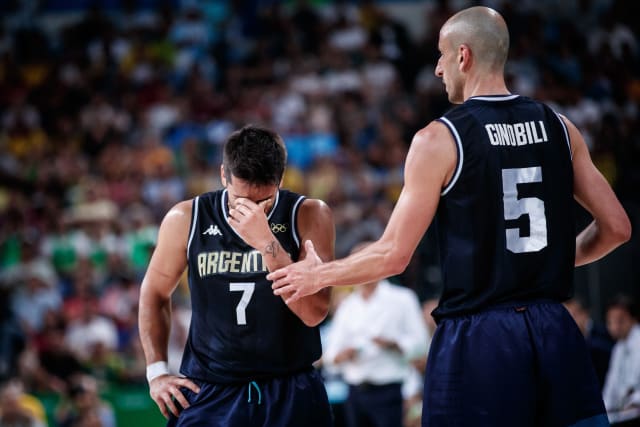
Slowly, his ceiling went higher and higher, step by step. 2013 would bring his first big challenge in a lead role in the National Team, at the Caracas FIBA Américas. How did he answer? By being the figure that qualified for the FIBA Basketball World Cup in Spain, by having 31 points and 11 assists in a win against the Dominican Republic that gave the bronze medal to Argentina. Later, a final test in his country. In 2014, Peñarol recovered the League’s title with a massive version of Facu, who dominated the competition with pleasure with barely 23 years. His country was already too small. And, after 11 titles and various individual prizes, it was time to fly and grow.
The jump
It was Real Madrid who opened their doors in Europe. Yes, the most important club in the world trusted the small boy from Córdoba. And again, the challenges, because even if the season ended with the team winning everything, even the Euroleague, Facu only had a few minutes on a roster that was full of stars. He even was out of the Liga ACB playoffs in Spain, and throughout the year the criticism rained on him. In the time of sitting opinion makers and social media, there was even talk of him not being good enough for a third string level team in Spain, that Madrid had hired a total fiasco. Facu was silent. He repeated the recipe: work hard, do his best, and —once more— break those prejudices.
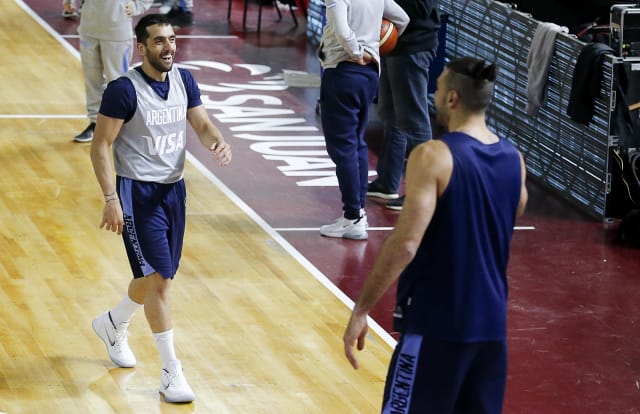
Next season he was sent to Murcia, a modest ACB Club, and found the ideal context to take over the team and to shine thanks to more opportunities and minutes. And once again he made history, because he took Murcia for the first time to the playoffs and had the opportunity to debut in Europe next year, in the EuroCup. Facu became a hero in the city, leaving an unforgettable mark, went forward, and won the respect of the competition. “Those two years helped me complete myself. I added a lot of things to my game,” he confessed.
In the middle of it, obviously, he ended up winning an indispensable spot in the Argentine National Team that deepened their renewal and found a leader in their new teammate. In the 2015 Pre Olympics, he silenced 20,000 souls in Mexico City and played his best tournament game against the local team to win the semifinals and to find the ticket to Rio de Janeiro 2016. They could say that it was coincidence, but again, a lot of times coincidences are not just that. In Brazil, on a date where the Golden Team had their last dance together (Ginóbili, Delfino, and Scola), Campazzo was the light that shone the most, being the best scorer (15.8 average) and passer (5.8) of the team. And, once again as part of the visiting team, he had his best celestial blue and white night in an epic win in additional doubles that would put Argentina in the quarterfinals: he had the most points with the jersey (33 points), gave 11 assists, and took an offensive rebound between all of the Brazilian towers that ended with a three-pointer from Nocioni that forced extra time. Yes, him, with his 5’8” height that, because of his heart, was doubled.
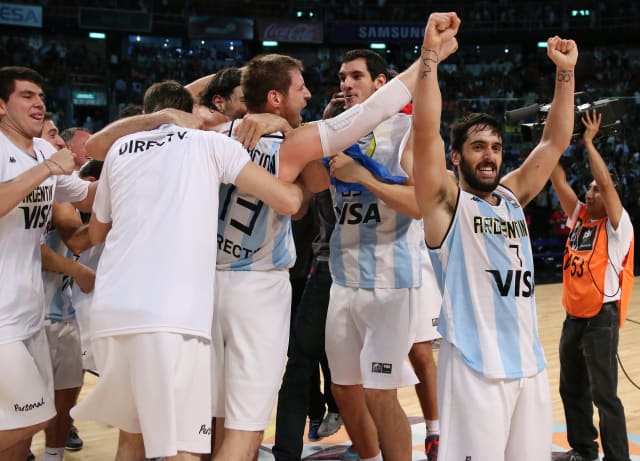
He needed to break the last prejudice against him. In the 2017/2018 season it was time to return to Real Madrid. His goal was clear from the beginning: to show that he was at the level of the situation. Again, another shot from destiny (a serious injury to the star, Spanish Sergio Llull) demanded him to step forward. He did it with confidence. And, step by step, he was taking over the team that had accumulated some problems throughout the year but that ended celebrating twice, with another title in the Euroleague and a new title in Liga ACB. “This was my small revenge. I had the desire to prove that I could do it. I felt like the main character,” said Facu. Real Madrid renovated his contract for three more seasons. Coincidence? Now we know that coincidences, a lot of times, are not that.
The reunion
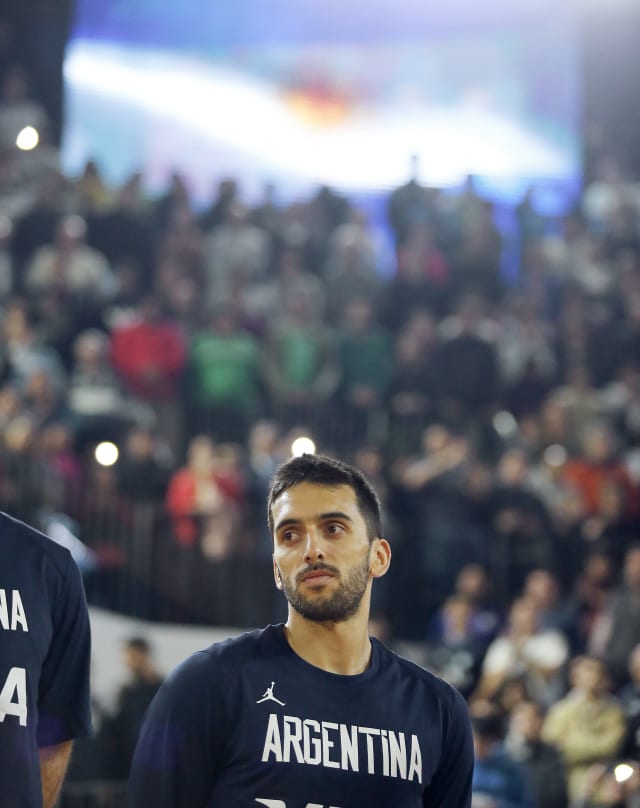
June 2018, Aldo Cantoni Stadium, San Juan, Argentina. A sea of 8,000 people applauded Facundo Campazzo and confirmed that that team, the Argentina National Team, was now their team. Because with the return to the third window of the Americas Qualifiers, Sergio Hernández’s team is showing a new face. And starting with their intensity, quality, and hierarchy, they beat Panama (87-62) in a game where the small guy from Córdoba made 12 assists, the best record of the competition. It was also the Argentine record for an official game, matching the numbers found by past historical figures like Pablo Prigioni, Alejandro Montecchia, and Miguel Cortijo. No, nothing is just a coincidence...
Facundo Campazzo is a 5’8” giant, a tireless hard-worker that created a luxurious career that, on top of that, is just starting. At 27-years-old, he is a vital piece of the biggest basketball club in Europe and the motor of one of the most prestigious National Teams in the Americas. He walks with the humbleness of the kid that started when he was 5-years-old in Municipalidad in Cordoba and has a charisma and spark that is a magnet for people. This link is automatic and special, something that those truly big create. And not for nothing. Facundo Campazzo is the missing link of the Golden Generation, that group that defined the biggest sports feat in its country. Facundo Campazzo is also a destroyer of prejudices.
“There was always that ‘he won’t get there’, but I don’t think that affected me. I know I am competitive, and in front of those situations and criticism, I tried to compete. It was not my desire to shut their mouths, but with my game I wanted to show them that they were wrong. I wanted them to think differently after my game. I might be liked a lot by a lot of people, a little to others, and other nothing. That will not change. I play because I have fun and because it is what I know how to do. The day that I stop having fun, I won’t play anymore,” Campazzo said.
“Everything that seemed that he could not do, he did it. It was said that his height stopped him, some questioned the way he played, this, that... But he overcame all of that. If I had to give a prize to the person with the most progress in the last seven or eight years, it would be Campazzo. Not only as a player: he changed his culture, his intellectual level, his body. He did not do it to be the best player, but also to be a better person,” said Sergio Hernández, the current coach of Argentina. Has the story been a coincidence? No, those things are not just that. At least in the life of Facundo Campazzo.
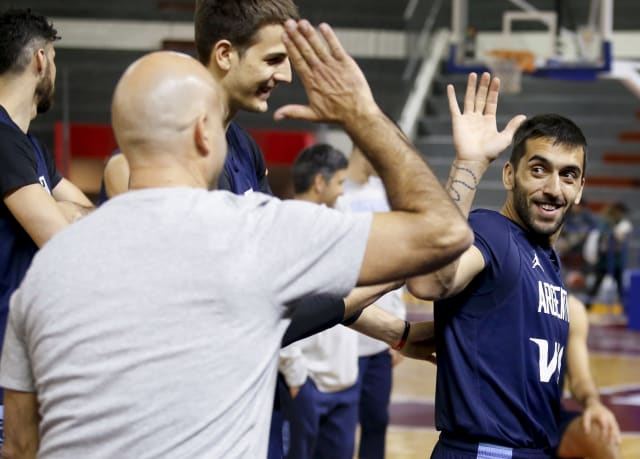
By Leandro Fernandez/Photo: Andres Stapff, Milad Payami, José Jiménez & Marcelo Figueras
FIBA